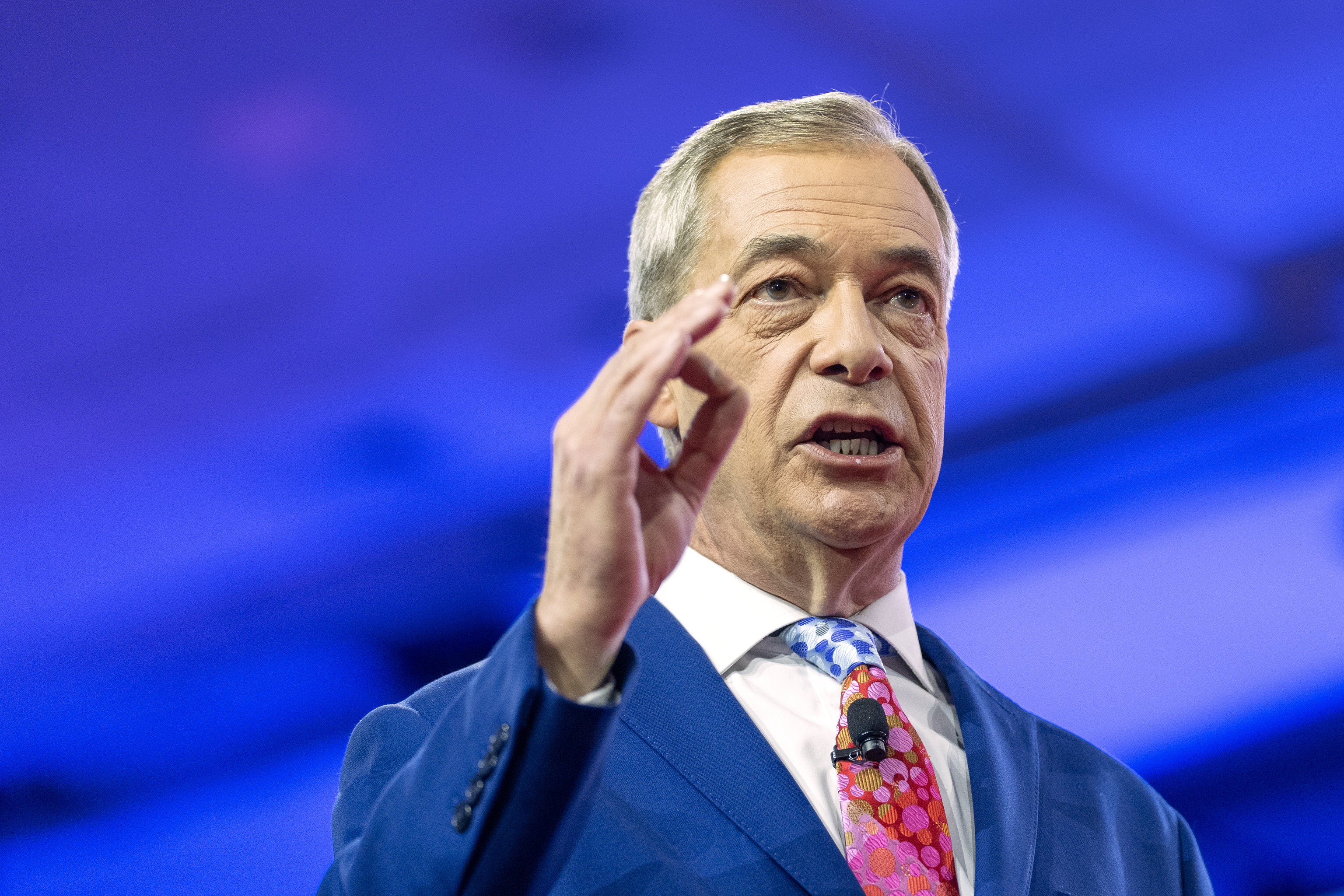"We are now the opposition to Labour." Nigel Farage, the leader of the far-right Reform Party, has always had a special ability to capture attention. And that statement, in response to the results of the local elections held in various rural regions of England, is an example of that. Certainly, it was an exaggeration. The title of "very loyal opposition" to Labour's government led by Keir Starmer is still held by the Conservative Party, which has 121 seats in the House of Commons compared to the four (now five since Thursday) of the Reform Party.
However, that does not take away from the fact that the elections were a resounding victory for Farage's party. If yesterday's results were repeated in the next general elections (scheduled for 2029), the far-right would obtain the highest percentage of votes and the highest number of MPs, and Nigel Farage would become Prime Minister unless Conservatives and Labour joined forces in a German-style grand coalition to prevent it, according to projections made yesterday with provisional data.
Pending final results, everything seemed to indicate that the Reform Party was going to be the most voted force, ahead of the Conservatives who had dominated politics in the region. The party of Kemi Badenoch, who took over the leadership of the party after the resounding defeat suffered at the hands of Starmer last July, was experiencing a massive loss of local power, while Labour, which did not start with many elected officials, seemed destined to finish in fifth place, behind the Greens. The only party whose voting intention remained stable, around 17%, were the Liberal Democrats, a center party that, however, has managed to capture a considerable part of the Tory vote.
Over 1,600 elected positions were being contested in local governments in a series of markedly conservative rural areas, where the Tories have exercised political leadership and the Reform Party has considerable popularity. But the results have been extreme.
What does all this mean? Firstly, that Farage continues to rise. His anti-immigration, anti-multilateralism, and anti-European Union rhetoric are working for him, and he now seems in a position to clearly challenge the Conservative Party for the leadership of the British right. This implies that the UK could be in a situation "not seen since the period from 1900 to 1945, when Labour ended up expelling the Liberals from their influential position in British politics," as explained to EL MUNDO by the London School of Economics professor Tony Travers.
Apart from historical trends, the elections will have short-term consequences. The most obvious is the threat they pose to the survival of Kemi Badenoch. The Tory leader is increasingly questioned within her party, and given the political cannibalism tendencies of the British Conservatives, her tenure is becoming more and more uncertain. Badenoch's plans to bring the Conservative Party closer to the Reform Party in an attempt to absorb it now seem discarded, as it is not clear who would absorb whom.
"There are different types of agreements that can be reached. One is a non-aggression pact, as both parties did in 2019, but ultimately that would be of little use, because what is now at stake is who will lead the center-right. And that leaves little room for coexistence," explains Travers. To further complicate matters for Badenoch, the Tories have problems if they move towards the center, because there the Liberal Democrats seem to be gaining strength. "These small parties - Reform and the Liberal Democrats - are no longer small, especially the former," emphasizes Travers.
It's not just the Conservatives who have reasons to worry. Farage is taking Labour votes, as was dramatically evident in the only parliamentary seat election held on Thursday. It was in the Rucon and Helsby constituency in northwest England, a Labour stronghold that the party won by 15,000 votes last July. Now, eight months and 29 days later, they lost it. It is true that it was by a narrow margin: just six votes. And that possibly the low voter turnout - thirteen points lower than in 2024 - played a significant role. But the symbolic impact is significant.
For Farage, this marks the beginning of a new political phase. For the first time, his party has power, albeit minimal, as they took the county of Lincolnshire from the Conservative Party, a predominantly rural area of about 6,000 square kilometers (approximately the size of Cantabria) and one million inhabitants (similar to Asturias).
With this result, the Reform Party is consistently becoming a formidable rival for the Conservatives and a clear contender to reach Downing Street, possibly in a coalition with Badenoch's party (although, at the current pace, it seems unlikely that she will be there to sign a coalition agreement). The ultranationalists are starting to gain local power, they have shown that they are building a national political structure, and, most importantly, they are going beyond the figure of their leader, a politician who evokes both enormous sympathy and immense rejection.
